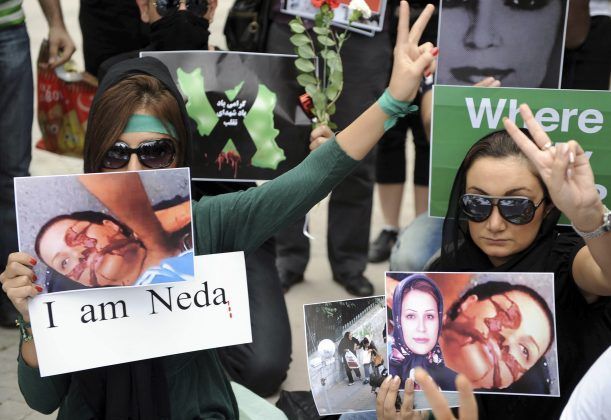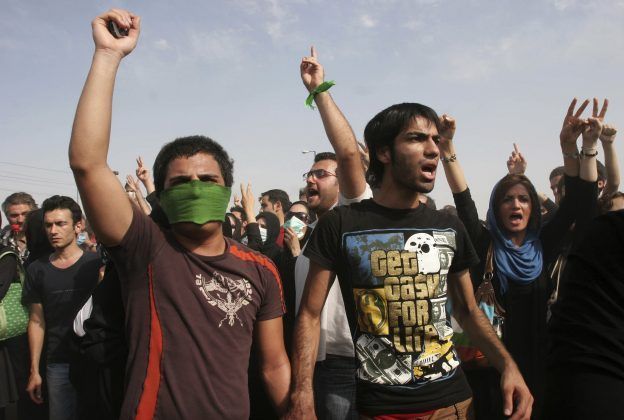DUBAI, Oct 30 (Reuters) – Iran‘s supreme leader on Wednesday accused the United States and Saudi Arabia of stoking unrest in Lebanon and Iraq, saying Tehran understood the situation in those countries because it had had to suppress similar foreign interference at home.
“The U.S. and Western intelligence services, with the financial backing of reactionary countries in the region, are spreading turmoil,” Ayatollah Ali Khamenei was quoted by his official website as telling graduating army cadets.
Khamenei urged protesters to seek changes in a lawful way in Iraq and Lebanon, where Iran has powerful allies among Shi’ite Muslim government factions.
[aesop_image img=”https://kayhanlife.com/wp-content/uploads/2019/04/2007-11-26T120000Z_622231380_GM1DWRJSQTAA_RTRMADP_3_IRAN-PALESTINIANS.jpg” panorama=”off” credit=”FILE PHOTO: Iran’s Supreme Leader Ayatollah Ali Khamenei (2nd L) inspects the parade by the members of Basij militia part of IRGC (paramilitary volunteer) during a ceremony to mark the Basij day in southern Tehran. Reuters” align=”center” lightbox=”off” captionsrc=”custom” captionposition=”left” revealfx=”off” overlay_revealfx=”off”]
In an apparent warning, Khamenei praised Iran‘s crackdown against street protests at home in 2018.
“They (U.S. and Saudi Arabia) had similar plans for our dear country, but fortunately the people… came out in time and the armed forces were ready and that plot was neutralised,” Khamenei said, in a reference to the protests which were put down by security forces while authorities held pro-government rallies.
[aesop_image img=”https://kayhanlife.com/wp-content/uploads/2019/04/2009-06-24T120000Z_1571837974_GM1E56P0ARV01_RTRMADP_3_IRAN-ELECTION.jpg” panorama=”off” credit=”Members of the Basij militia dressed in black on motorbikes patrol the area in front of the Iranian Parliament in Tehran June 24, 2009. The Basij, a volunteer paramilitary force under the control of the hardline Revolutionary Guards, has been out in force on Tehran’s streets to counter days of protests over the disputed June 12 2009 presidential election. Iran’s Supreme Leader Ayatollah Ali Khamenei declared at the time that the disputed election result would stand, despite street protests that Iranian officials say Britain and the United States have incited. REUTERS/” align=”center” lightbox=”off” captionsrc=”custom” captionposition=”left” revealfx=”off” overlay_revealfx=”off”]
Iran‘s weeks-long unrest in 2017-2018 began as protests about economic hardship and corruption but grew into political rallies, some of which criticised Khamenei by name.
They were the boldest challenge to Iran’s leadership since 2009, when security forces crushed a pro-reform uprising and killed dozens of protesters.
“Our advice has always been to call for peace and (stopping) interference by foreign forces in these countries (Iraq and Lebanon),” President Hassan Rouhani’s chief of staff Mahmoud Vaezi was quoted as saying earlier by state media.
The United States, Saudi Arabia and Israel were riding a wave of popular demands and providing those forces with financial support, he added.
(Reporting by Dubai newsroom; editing by William Maclean)



